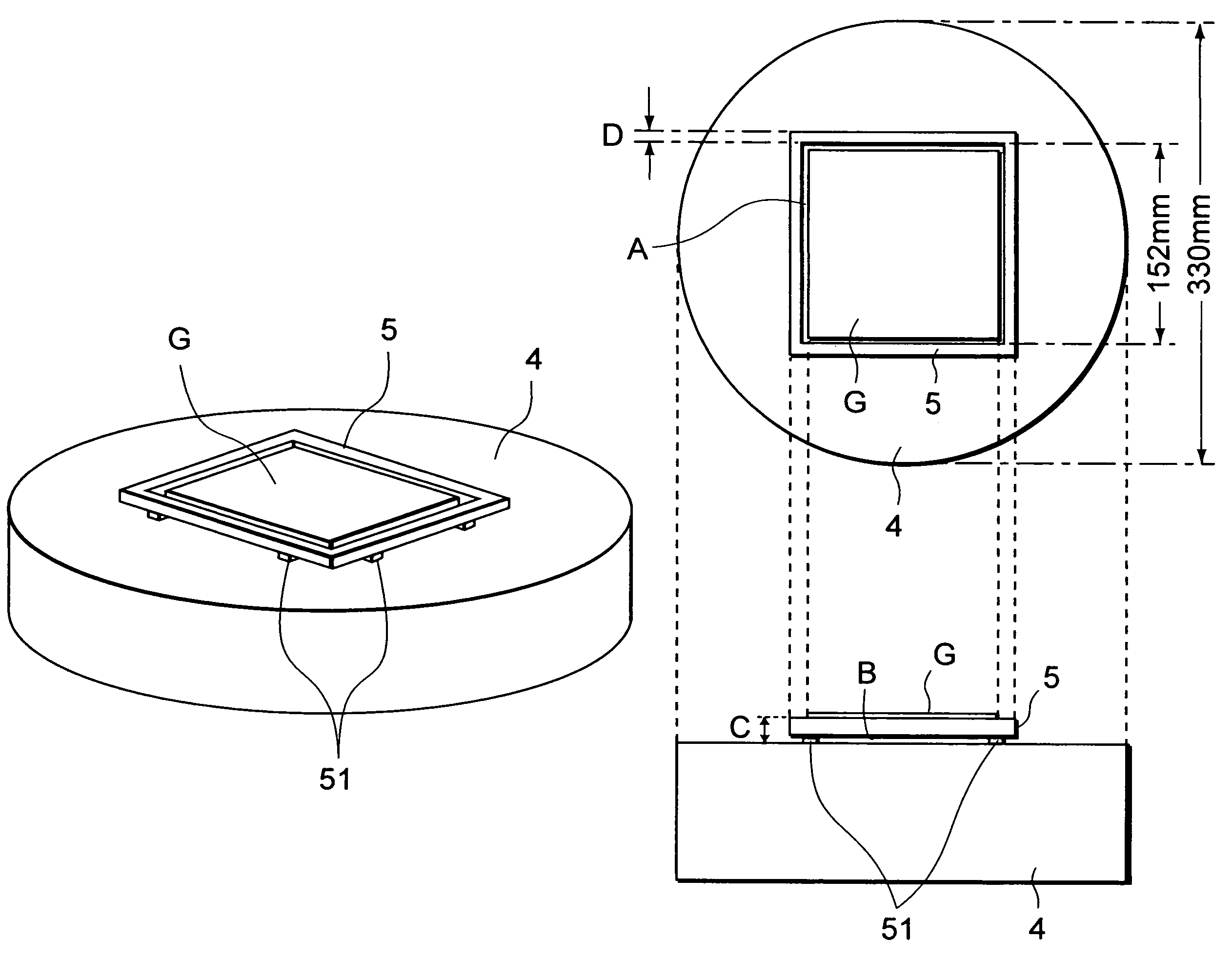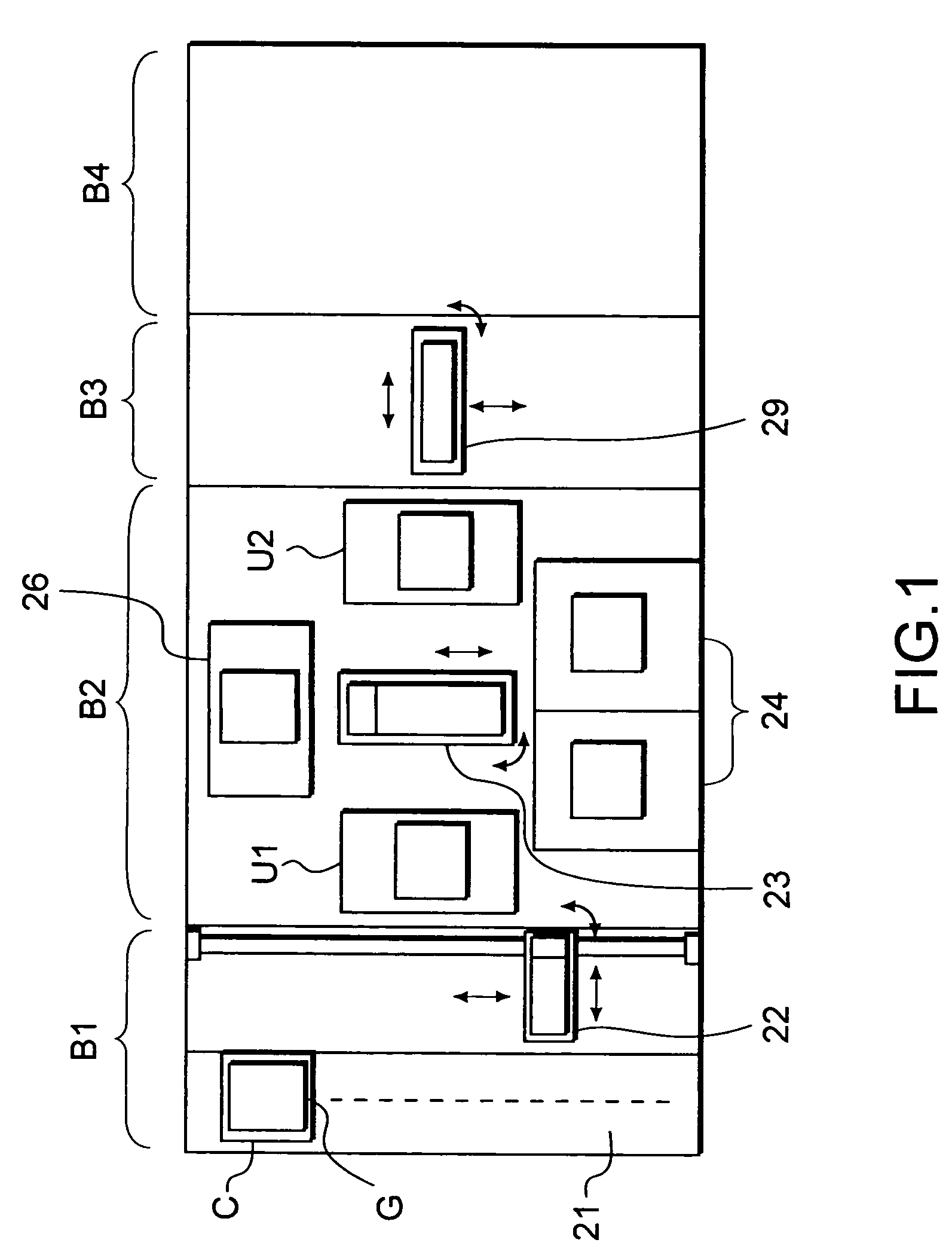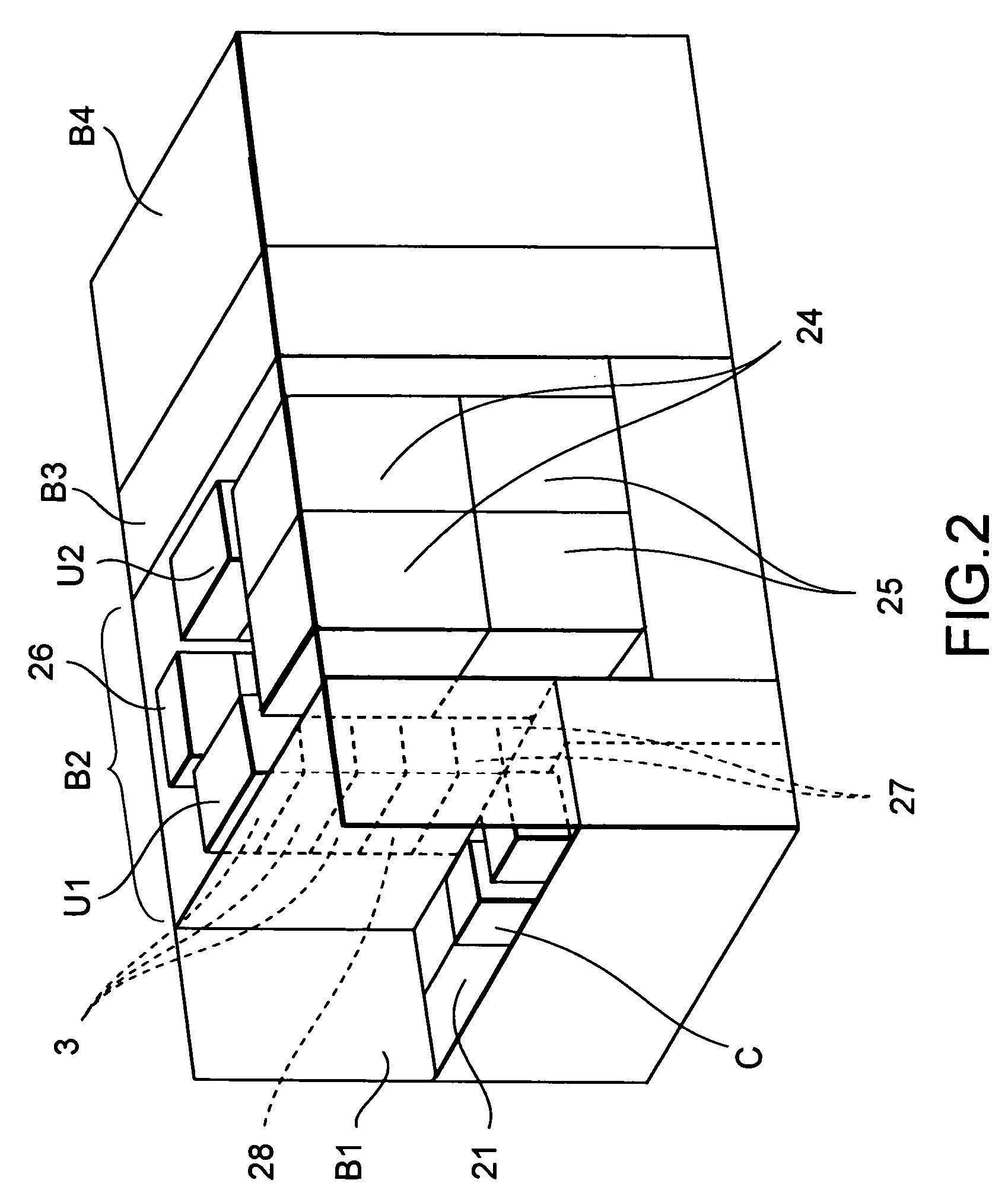Heat processing apparatus and heat processing method
a heat processing apparatus and heat processing technology, applied in the direction of instruments, charge manipulation, furnaces, etc., can solve the problems of difficult removal of these particles, deterioration of the surface uniformity of the resist film, and deterioration of the temperature uniformity of the surface of the substrate, so as to achieve high temperature uniformity of the surface
- Summary
- Abstract
- Description
- Claims
- Application Information
AI Technical Summary
Benefits of technology
Problems solved by technology
Method used
Image
Examples
first example
[0081]A square-type substrate having four sides each of which is six inches long and having temperature sensors was placed on a circular heating plate that has a diameter of 330 mm and that is used to heat a semiconductor wafer having a diameter of 12 inches. A frame member made of an aluminum alloy was disposed around the substrate. The substrate was heated at 120° C. by the heating plate and the substrate was kept in a temperature constant state. In that state, the temperatures of the surface of the substrate were detected. At that point, the distance between each of the side surfaces of the substrate and the inner surface of the frame member was 2 mm. The height of the frame member from the front surface of the heating plate was 6 mm. The width of the frame member was 10 mm. The distance between the lower surface of the frame member and the front surface of the heating plate was 0.1 mm. In this example, a heating plate having a diameter of 330 mm was exemplified. However, it shou...
second example
[0087]A square substrate having four sides each of which is six inches long and having temperature sensors was placed on a circular heating plate that has a diameter of 330 mm and that is used to heat a semiconductor wafer having a diameter of 12 inches. A frame member made of an aluminum alloy was disposed around a substrate. The substrate was heated at 150° C. and kept in a temperature constant state by the heating plate. In that state, the temperature on the surface of the substrate were measured. At that point, the substrate was supported by proximity pins disposed on the front surface of the heating plate in such a manner that the substrate floated on the front surface of the heating plate by 80 μm. The distance between each of the side surfaces of the substrate and the inner surface of the frame member was 2 mm. The height of the frame member from the front surface of the heating plate was 6 mm. The width of the frame member was 10 mm. The distance between the lower surface of...
third example
[0090]Except that the substrate was heated at 220° C., an experiment was conducted in the same condition as the second example. FIG. 16A shows a chronological change of measured values of the temperatures of temperature sensors. The range width of the temperatures on the surface of the substrate in a time period from 400 second to 600 seconds after the substrate was heated and the substrate temperature became stable was 1.50° C.
PUM
| Property | Measurement | Unit |
|---|---|---|
| diameter | aaaaa | aaaaa |
| thickness | aaaaa | aaaaa |
| thickness | aaaaa | aaaaa |
Abstract
Description
Claims
Application Information
 Login to View More
Login to View More - R&D
- Intellectual Property
- Life Sciences
- Materials
- Tech Scout
- Unparalleled Data Quality
- Higher Quality Content
- 60% Fewer Hallucinations
Browse by: Latest US Patents, China's latest patents, Technical Efficacy Thesaurus, Application Domain, Technology Topic, Popular Technical Reports.
© 2025 PatSnap. All rights reserved.Legal|Privacy policy|Modern Slavery Act Transparency Statement|Sitemap|About US| Contact US: help@patsnap.com



